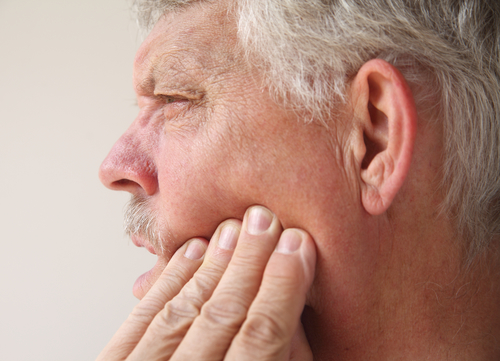
Your jaw plays a big role in your daily life without you even realizing it. Our jaw muscles help us talk, drink, chew and make facial expressions. One thing that does make you realize the vitality of your jaw is experiencing chronic jaw pain or dysfunction. Jaw pain can have various causes, but there are also various treatment options that have proven to be extremely effective in relieving jaw pain.
If you’re experiencing chronic jaw pain, don’t hope for it to go away on its own, and take matters into your own hands to relieve your aching jaw.
Common Causes of Jaw Pain
The reason behind why your jaw hurts can something as common as a toothache, or as serious as a sign of a heart attack. Untreated jaw pain can lead to poor oral health, breakdown and loss of teeth and bone, chronic headaches, and hearing problems. Some of the possible causes of your jaw pain are listed below.
Signs of a TMJ Disorder
On each side of your jawbone lies a temporomandibular joint, more well known as the TMJ. This joint acts as a hinge that connects your jaw to your skull. Although there are a variety of TMJ disorders, they all share jaw pain as the most common symptom patients experience. Signs of a TMJ disorder include jaw stiffness, difficulty opening your jaw, a painful clicking or popping sound when opening or closing your mouth, or feeling like your jaw is “locked”, ongoing headaches, dizziness, vision problems, or ringing in your ears.
A Symptom of Stress
Stress and anxiety often lead to patients developing bruxism, or the habit of grinding your teeth. Often happening during sleep, patients clench and grind their teeth together without even realizing it, which creates a great deal of tension in your teeth and jaw, along with the muscles and tendons that support your jaw. In addition to jaw pain, grinding your teeth can quickly cause extensive damage to your teeth and should be treated right away.
Misaligned Bite
When your teeth are no longer lined up properly when you bite or chew, it causes your jaw to malfunction. This creates wear and tear, and resulting pain in the jaw joints and muscles. A misaligned bite is typically resolved with orthodontic treatment to properly align the teeth, or procedures to reshape teeth and improve your bite.
An Impacted Wisdom Tooth
If your wisdom tooth begins to come in, and there is not enough room in the bite when the tooth breaks through the gums, it can become trapped, or impacted. This is common with wisdom teeth and is one of the top reasons behind an achy jaw for patients ages 15-25.
An Untreated Cavity
When a cavity goes untreated, it works its way into the layer underneath your enamel, or your dentin, which leads to you beginning to feel discomfort and aching teeth. If the cavity continues down into the pulp of your tooth, it can cause pain to radiate around your jaw.
Determining the Source of Your Pain Together
According to the American Dental Association, more than 15% of Americans suffer from some sort of chronic facial pain such as headaches, earaches or jaw pain. For many patients, discomfort and pain related to TMJ can last for years if left untreated. Determining the source of your pain is the first step in treating your discomfort. Dr. de Jongh will check to see if your pain is associated with TMJ by examining the facial muscles to check for tenderness, performing a range of motion exam to listen for locking, clicking or popping, and taking a series of x-rays to check the positioning and contact of your jaw.
Finding an Effective TMJ Treatment
The key to treating TMJ is management. We use trigger-point injections of Botox therapeutic to relax the muscles that surround the joint and, in most cases, relieve the pain and spasms entirely. Mouth guards may be prescribed to protect the teeth from damage and treatment to correct the placement of teeth may be necessary to restore proper alignment of the jaw. Together we can manage your chronic jaw pain, and restore your quality of life. Don’t spend one more day with chronic jaw pain, and schedule an appointment with Dr. David de Jongh today.
